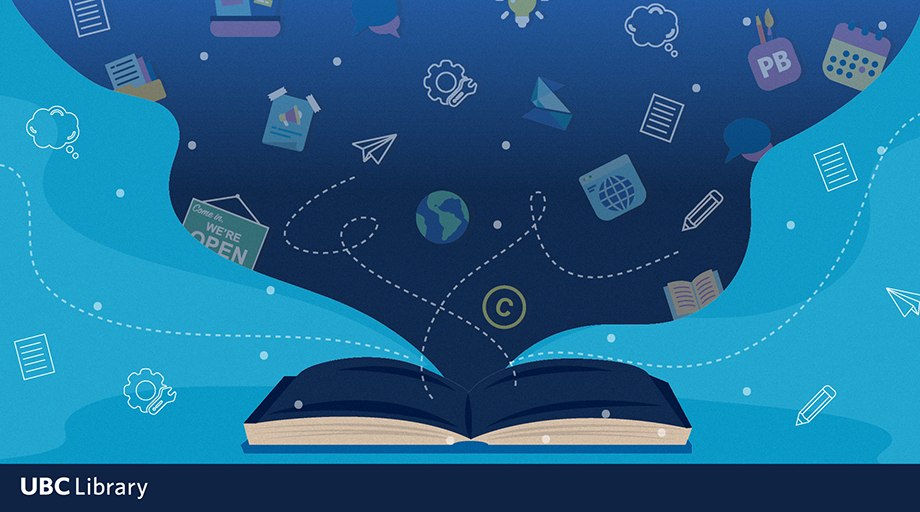
The steep cost of teaching and learning resources is a heavy burden for many students, but UBC faculty are finding new ways to lighten the load with open educational resources. This year, Open UBC is introducing a new way for UBC faculty, staff, and students to learn about these innovative projects.
The UBC OER Project Virtual Showcase and Poster Session (March 7 | 2:00 – 3:30 p.m. PT) will celebrate the work of UBC authors who have developed open educational resources (OER) projects supported by the UBC Vancouver OER Fund and the UBC Okanagan Aspire-2024 Learning Transformations (ALT-2040) Fund. Open educational resources allow instructors to provide meaningful, contextualized resources for their students, while helping to support affordable and inclusive access to learning materials.
“Textbooks are just so expensive for students,” says Dr. Claire Yan, an Associate Professor of Teaching in UBC Okanagan’s School of Engineering and author of the open textbook Introduction to Engineering Thermodynamics.
While a single textbook can cost roughly $150 to 200, for undergraduate engineering students, who take up to a dozen or more courses each year, the cost can rise into the thousands for textbooks alone.
“The other cause for concern is most textbooks are very comprehensive and cannot be covered by a single course,” says Dr. Yan. “For example, electrical [engineering] students only need to understand certain portions of thermodynamics, so they only need to use half or even one-third of the common commercial textbook, but they have to purchase the whole book.”
Initially, Dr. Yan decided to offer up her lecture notes, for free, in a digital format that students in her second-year thermodynamics course could choose to print out, or read on their devices. For the first couple years, this worked fairly well—the notes were tailored to the course content, without all the extraneous material included in the textbook, and students were no longer obligated to spend hundreds of dollars on a textbook that they would likely only use once.
Turning these notes into an open textbook—which could be accessed online as a freely available digital resource in the public domain—was a natural next step, but it wouldn’t be a simple project. “It’s not a direct translation from [lecture] notes to book—it’s more work to ensure all the material in the open textbook has an open license,” Dr. Yan says.
In 2021, she received funding through the UBC Okanagan Open Educational Resources Grant Program and was able to hire two students to assist with the work of creating the open textbook, over the course of two summers. Introduction to Engineering Thermodynamics was published in September 2022.
Since then the project has evolved even further, with help from Dr. Casey Keulen, an Assistant Professor of Teaching at UBC’s Department of Materials Engineering.
“I was tasked with teaching a second year class starting in September 2022, and I was trying to find an OER for [the course] and some problem banks. I didn’t want to force students to pay a lot of money for a textbook that they wouldn’t get much use out of,” says Dr. Keulen.
At an American Society for Engineering Education (ASEE) conference in Vancouver that year, Dr. Keulen was introduced to Dr. Yan and to her open textbook. Since then, Dr. Keulen has been working on a problem bank to add to the open textbook, with plans for more collaborative additions in the future.
“I’ve talked with few people who were interested—or in the process of—developing OER. But none of those topics were in engineering,” says Dr. Yan. “From my perspective, the reason people are not developing engineering textbooks as open textbooks is because it’s more complicated. Because for engineering, you need all kinds of equations, formulas, simulations and drawings, versus if it’s pure text.”
Finding community has been an important part of the OER journey for both Dr. Yan and Dr. Keulen, who are excited to share more about their experiences and connect with faculty and students at the very first UBC OER Project Virtual Showcase, as part of Open Education Week at UBC.
“It’s open education, and it should be open, right? The more people engaging with it, the bigger and better for this community,” says Dr. Yan, who sees the showcase as a good platform to discuss OER as it relates to teaching. “It’s not just about the material that we have already developed, but also about how we actually implement the material into teaching. How do we have innovative open education pedagogy? That’s something I think will be really helpful for our team and for the larger community.”
Learn more about the UBC OER Virtual Showcase.
About Open Education Week at UBC
Check out all the Open Education events at UBC this month, including an online keynote with science fiction author, activist and journalist Cory Doctorow on March 26, 2024. Register now!
There’s also still time to submit your nominations for the 2024 UBC OER Champions, presented by the Alma Mater Society (AMS). The call is open for students and other members of the UBC community to nominate those faculty who work to support affordable and inclusive access to learning materials. Learn more!